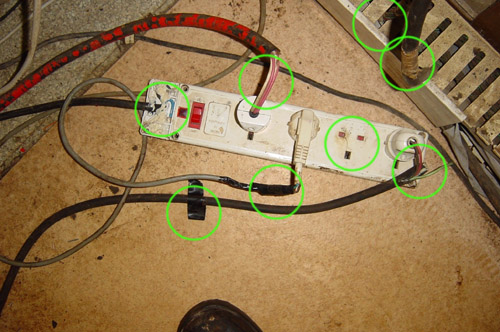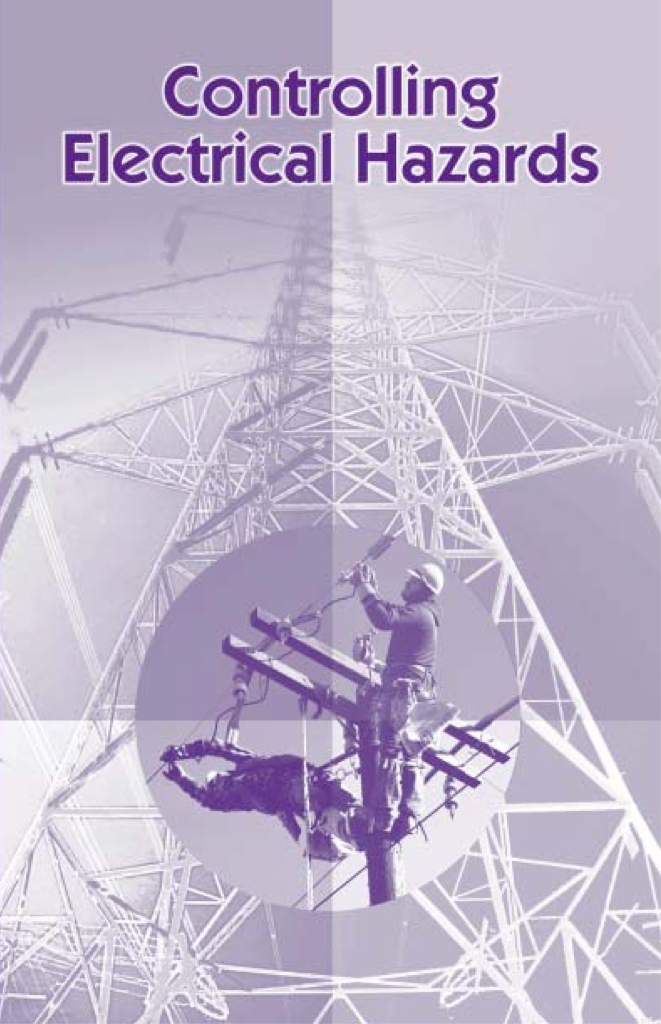Is 120V AC Dangerous?

NFPA 70e Training - Arc Flash
Our customized live online or in‑person group training can be delivered to your staff at your location.

- Live Online
- 6 hours Instructor-led
- Group Training Available
Download Our OSHA 3075 Fact Sheet – Understanding Electrical Hazards in the Workplace

- Learn the effects of electric current on the human body
- Understand OSHA safety standards and protective devices
- Discover essential lockout/tagout and grounding practices
Is 120V AC dangerous? Although it is the standard voltage in North American homes and workplaces, it can still cause shocks, burns, and even death. Safe use requires grounding, insulation, and awareness of current flow to reduce risks.
Is 120V AC Dangerous?
Asking “Is 120V AC dangerous?” means examining its potential to harm people when misused or unprotected. Though standard in North America, this voltage carries real risks that must be respected.
✅ Can cause electrical shock and serious injury
✅ Requires grounding, insulation, and circuit protection
✅ Demands safe handling in homes and workplaces
Request a Free Training Quotation
How 120V AC Affects the Body
The human body conducts electricity, and when exposed to an electrical current, it can disrupt the normal functioning of the heart, muscles, and nervous system. At 120V AC, the risk of electric shock is significant, especially if the current passes through vital organs. The severity of the shock depends on several factors such as the resistance of the skin, the duration of the exposure, and the current's path through the body. Even a small amount of current, as low as 0.1 amps, can cause severe injury or be fatal. Read our electricity safety article for more information about how to protect yourself from injury.
Transition: Understanding how electricity interacts with the body helps explain why 120V AC cannot be dismissed as harmless. But the danger is not uniform—it depends on several important conditions. OSHA’s 29 CFR 1910.147 lockout/tagout standard emphasizes the importance of isolating circuits, even at 120V, in preventing electrical injuries.
What Factors Determine the Danger Level of 120V AC Electricity?
Several factors influence how dangerous 120V AC electricity can be:
Sign Up for Electricity Forum’s Arc Flash Newsletter
Stay informed with our FREE Arc Flash Newsletter — get the latest news, breakthrough technologies, and expert insights, delivered straight to your inbox.
-
Current path through the body: If the current passes through the chest, particularly the heart, it increases the risk of cardiac arrest.
-
Duration of exposure: The longer the body is exposed to an electric shock, the greater the risk of injury or death.
-
Environmental conditions: Wet or damp environments can reduce the skin's resistance to electricity, making shocks more severe.
-
Body's condition: A person's skin condition, such as the presence of sweat or cuts, can affect how easily electricity passes through the body.
These variables help explain why even “low” household voltage can still be lethal. To put this into perspective, it helps to compare 120V AC with higher voltages. Even small circuits can trigger catastrophic effects, making it important to recognize the link between electric shock and events like an arc blast.
How Does 120V AC Compare to Higher Voltages in Terms of Risk?
Though 120V AC is a relatively low voltage compared to industrial power supplies, it is still dangerous. Higher voltages, such as 240V or higher, increase the severity of potential injuries. However, 120V AC should not be underestimated. Its lower voltage does not equate to safety—120V AC can still deliver a fatal shock under the right circumstances.
Due to these risks, proper safety practices are crucial when working with 120V AC circuits.
What Safety Precautions Should Be Taken When Working with 120V AC?
Working with 120V AC requires adherence to basic safety precautions to prevent accidents:
-
Turn off the power: Always disconnect the electrical source before working on circuits.
-
Use insulated tools: Tools with insulated handles help prevent accidental shocks.
-
Wear protective gear: Gloves and rubber-soled shoes reduce the risk of electricity passing through the body.
-
Work in dry conditions: Avoid working with electrical systems in wet or damp areas, as moisture significantly increases the risk of shock.
Moisture is one of the biggest factors that magnifies risk, making 120V AC especially hazardous in certain environments.
Is 120V AC More Dangerous in Wet or Damp Conditions?
Yes, 120V AC is considerably more dangerous in wet or damp conditions. Water lowers the skin's resistance, allowing electricity to pass through the body more easily. This increases the likelihood of severe electric shocks. It is crucial to avoid handling electrical systems with wet hands or in damp environments without appropriate protective measures, such as rubber gloves or insulated boots.
So, is 120V AC dangerous? Yes—when mishandled, it can be deadly. Respecting risks, adhering to safety standards, and implementing protective practices are essential. Treat every electrical circuit with caution, even at household voltage levels, to prevent injury or fatal accidents.
Related Articles








